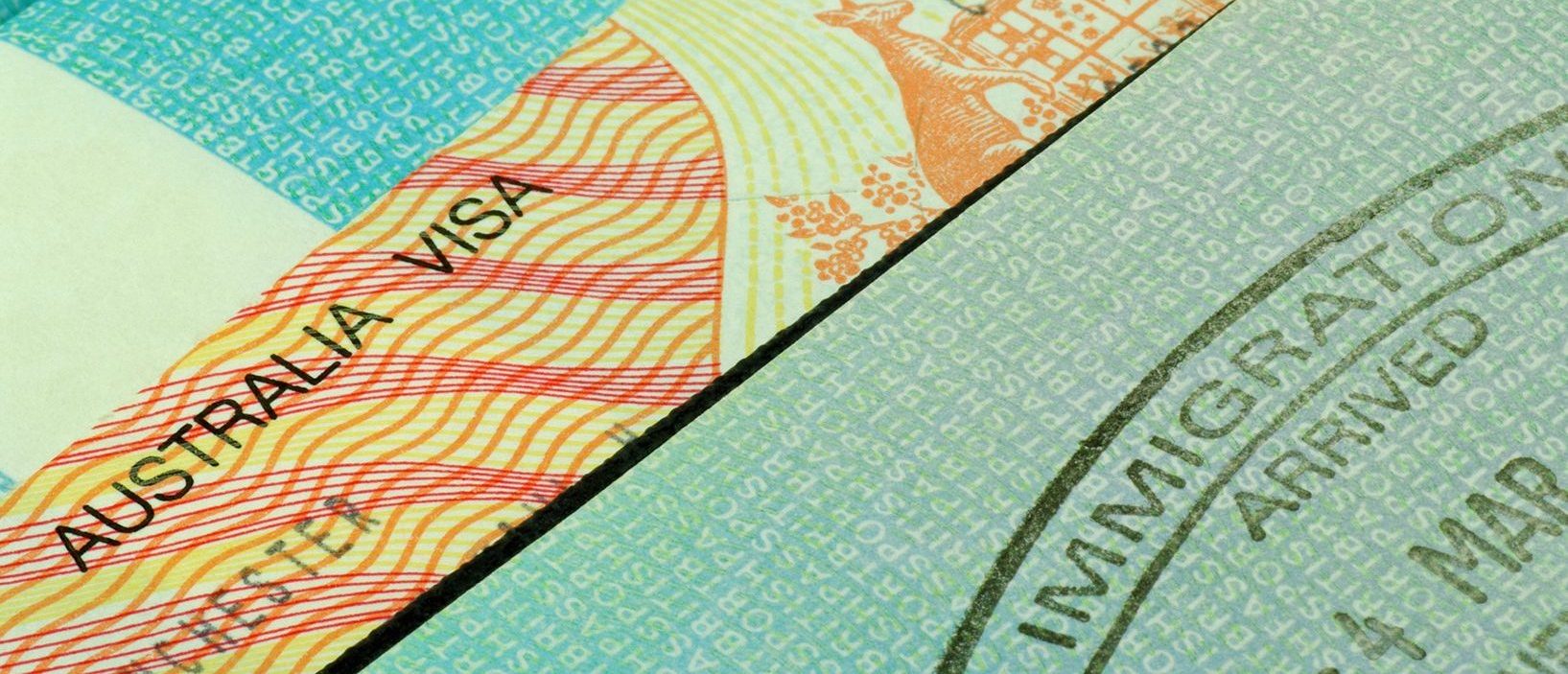Current situation in Afghanistan in late August 2021
The fall of Kabul in Afghanistan on 15 August 2021 is a significant historical event, and which has humanitarian repercussions to which all countries involved in the conflict in Afghanistan must respond.
The Australian Government has announced the allocation of 3,000 humanitarian places to Afghan nationals in its Offshore Humanitarian visa program. The priority of the Australian Government right now is to assist all Australian Citizens, Australian Permanent Resident Visa holders and locally engaged staff and their families safely out of Afghanistan.
As the situation is fluid and ever-changing; if you have family members who are in Afghanistan or who have fled Afghanistan due to recent events, it is important to check back with your immigration lawyer regularly for updates as to whether there is an opportunity to bring your family members to Australia.
We at Craddock Murray Neumann Lawyers (CMN) are deeply concerned for the welfare of many of our clients who have loved ones in Afghanistan; we are prioritising consultations to assist Afghan Australians with visa applications for their family members in Afghanistan or who have recently fled Afghanistan.
What can I do now to help my family from Afghanistan?
A significant refugee crisis unfolding in Afghanistan will put the basic human rights of Afghanistan’s women, children, ethnic and religious minorities and people with high profiles at risk.
If you have a family member who is affected by the events unfolding in Afghanistan, it is important to know that there are several Australian visa and humanitarian categories that your family member may consider applying for or that you can apply for on their behalf.
CMN can assist you and your family members with the visa applications and our lawyers can also make urgent contact with the Australian Government’s Department of Foreign Affairs and Trade (DFAT) on your behalf about family members in Afghanistan affected by recent events.
If your family’s situation is urgent, please contact us immediately on 1300 123 529 or via visas@craddock.com.au so that we can assist you.
Different Australian humanitarian visas potentially available for Afghan nationals
Partner visas
If your family member is the holder of a Partner visa, there may be scope for your family member to come out as a part of the priority group. It may be best to contact DFAT consular staff in Afghanistan who are making arrangements for Australian Permanent Residents.
If you are an Australian citizen or permanent resident in Australia who has sponsored your spouse or partner for a Partner visa and the visa application has not yet been decided, you may wish to make contact with the Australian Department of Home Affairs office processing the visa applications to request expedited processing of the visa applications.
Alternatively you can ask CMN to make contact with DFAT or the Department of Home Affairs visa processing office on your behalf; please contact us on 1300 123 529 or via visas@craddock.com.au so that we can assist you.
Humanitarian visas if your family member is in Afghanistan
It may be possible to apply for Humanitarian (Class XB) visa if your family member is in Afghanistan; they may be eligible for the Subclass 201 In-country Special Humanitarian or the Subclass 203 Emergency Rescue visas. These visas do not require a sponsor (proposer).
Humanitarian Visas if your family member is outside Afghanistan
Other Humanitarian (Class XB) visa categories that are potentially available include:
- Emergency Rescue (subclass 203)
- Offshore Refugee (subclass 200)
- Global Special Humanitarian Visa and Community Support Program (subclass 202)
- Women at Risk (subclass 204).
Further details on some of the different types of humanitarian visas potentially available to Afghan nationals are set out below.
Offshore Refugee visa (subclass 200)
The Offshore Refugee (Subclass 200) visa is a permanent visa. It is granted to an applicant who is found by the Department to be living outside of their country and subject to persecution in their home country. The term “persecution” is not defined in the Migration legislation, however, for the purposes of assisting Afghan nationals, you should turn your mind to whether the following apply to your family members:
- facing facing any threat to life, liberty, or security if returned to Afghanistan;
- at risk of continued or periodic harassment, detention, or arrest if returned to Afghanistan;
- has been exiled from Afghanistan;
- at risk of being arrested or detained if returned to Afghanistan;
- at risk of being subject to torture, cruel or inhuman treatment if returned to Afghanistan.
Your application must show compelling reasons for special consideration for the grant of a permanent visa.
In the context of the current situation in Afghanistan, your family members may be at risk due to discrimination based on race, sex, religion, or particular social group. This includes, in the Afghanistan context, persecution because of being an ethnic minority such as a Shi’a Hazara or being a woman, girl or child, who may face discrimination and prevented from accessing education or employment opportunities.
The Department will also look at factors such as:
- the degree of discrimination or persecution;
- the extent of the applicant’s connection with Australia;
- whether there is any other suitable country available; and
- capacity of the Australian community to provide for the permanent settlement.
Global Special Humanitarian Visa and Community Support Program (subclass 202)
The Global Special Humanitarian visa is like the Offshore Refugee visa except for this visa requires that the applicant be “proposed” for this visa by a person or organisation in Australia, which is similar to a sponsor.
A proposer (or sponsor) must be one of the following, either an:
- Australian citizen; or
- Australian permanent resident; or
- organisation in Australia known as the Community Support Program (CSP).
How to ‘propose’ or sponsor family members in Afghanistan for a humanitarian visa
If you have family members in Afghanistan, you may be able to propose your family members for this visa if they meet the eligibility requirements. Your family members will need to show that they are subject to substantial discrimination, amounting to gross violation of human rights.
Australian proposers under the CSP can be individuals or families, businesses, or community organisations which work with Approved Proposing Organisations (APOs) and enter into arrangements to propose and support offshore applicants for humanitarian visas.
There are now 10 APOs that are approved to submit the visa applications and may be able to assist your family. They are:
- AMES Australia – providing services on a national basis;
- Assyrian Australian Association Inc. – providing services in NSW;
- Australian Migrant Resource Centre (AMRC) – providing services in South Australia;
- Australian Refugee Association (ARA) – providing services in South Australia;
- Brotherhood of St Laurence (BSL) – providing services in Victoria;
- Diversitat – providing services in Victoria;
- Illawarra Multicultural Services (IMS) – providing services in the NSW Illawarra region;
- International Organization for Migration (IOM) – providing services nationally;
- Multicultural Development Australia (MDA) – providing services in Queensland; and
- Spectrum Migrant Resource Centre – providing services in Victoria.
The Department of Home Affairs has provided a table of the administrative costs charged by each organisation.
For more details on the CSP please see the website of the Department of Home Affairs.
Woman at Risk Visa (subclass 204) – Women from Afghanistan may be eligible for this visa
A subclass 204 visa might be granted to a female from Afghanistan if she is found by the Department to be:
- living outside of her home country and subject to persecution in Afghanistan;
- not have the protection of a male relative; and
- is in danger of victimisation, harassment or serious abuse because of her gender.
Split family streams
Each humanitarian visa subclass noted above has provision for a visa holder to propose their immediate family members – i.e. spouse, de facto partner, dependent children, as well as parents of proposers aged under 18 – for the same subclass of visa within 5 years of being granted their own visa.
For example, a holder of a Subclass 200 Refugee visa granted in 2021 may be eligible to propose their immediate family members for Subclass 200 Refugee visas before 2026.
CMN can help you with understanding which humanitarian visas your family members may be eligible to apply for.
If you are worried about a family member in Afghanistan do not delay – CMN can help
After contacting your immigration lawyer your next best steps are to put forward the best possible visa application on behalf of your family from Afghanistan. The range of humanitarian visas available can be confusing, and the visa application process is complex and given the current situation in Afghanistan time sensitive. There is also the risk that if you pursue the wrong type of visa, or overlook any aspect of your visa application, your family members may face a visa refusal or prolonged visa processing.
CMN is here to help. You must act quickly to ensure that eligible family members have applied for the right humanitarian visa.
With more than 30 years’ experience in applying for protection, refugee and humanitarian visas on behalf of asylum seekers and refugees our Immigration lawyers have the extensive knowledge and necessary experience to assist your family in coming to Australia.
CMN will help you consider the options, the right type of visa and then swiftly and carefully put forward the best possible visa application for your family. As your immigration lawyers we can also make contact and urgent representations with DFAT on behalf of your family.
Our team is at the ready to support you during this difficult time, please contact us to schedule a no obligation consultation with one of our experienced immigration lawyers.
Please note that this page states the law as at 25 August 2021. Australian immigration law is complex and changes frequently, and the law may have been changed since this blog was drafted. The situation in Afghanistan is also constantly evolving and may also have changed since this blog was drafted.


